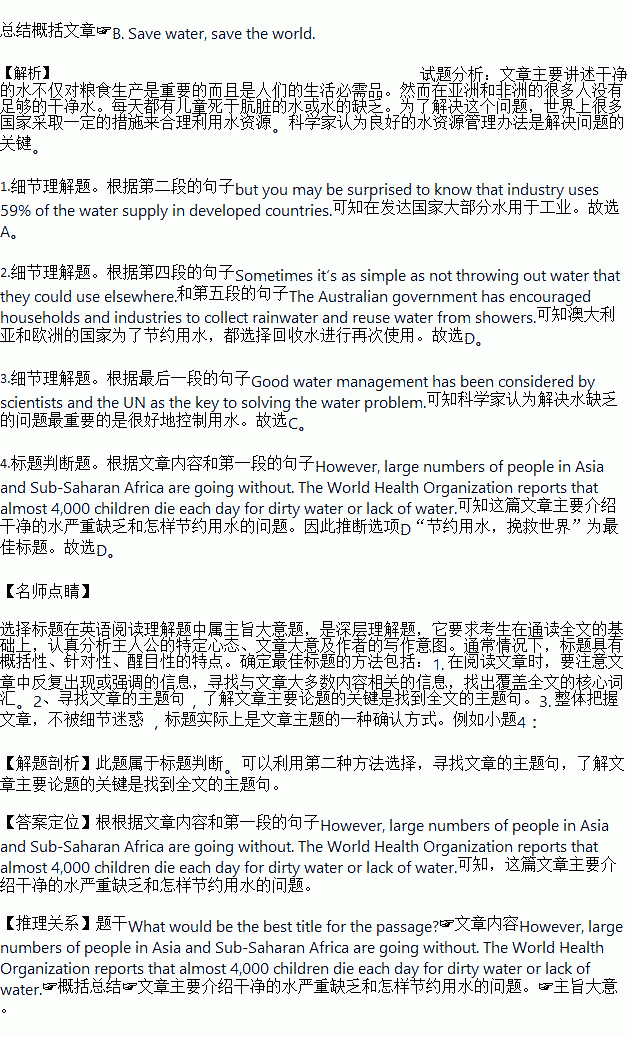题目内容
Clean water is not only important for food production, but necessary for our life. However, large numbers of people in Asia and Sub-Saharan Africa are going without. The World Health Organization reports that almost 4,000 children die each day for dirty water or lack of water.
Agriculture is the primary user of water at 70–85% of fresh water in the world. Industrial uses of water don’t often come to mind, but you may be surprised to know that industry uses 59% of the water supply in developed countries.
Home use takes up only 8% in the world. But as cities grow, the local government has to cut down on water use. Many cities are turning to privatization (私有化) of water as a method of controlling use. The poor are paying as much as a quarter of their monthly income for water in some developing countries.
In 60% of large European cities, groundwater is being used at a faster rate. People are saving water by simply using less and being careful with what they do use. Sometimes it’s as simple as not throwing out water that they could use elsewhere.
In Australia overuse of water has always been a problem. The Australian government has encouraged households and industries to collect rainwater and reuse water from showers. Technology is helping householders for shower and bath water for reuse in toilets or gardens.
The U.S. Environmental Protection Agency has made a water saving program designed to encourage families and businesses to examine their water use and save more water. Good water management has been considered by scientists and the UN as the key to solving the water problem. We can all work together to protect our valuable water in our daily life.
1.In developed countries, most water is used by ______.
A. industry B. agriculture
C. families D. businesses
2.To save water, what do Australians and Europeans both choose to do?
A. Find more groundwater.
B. Make good use of rainwater.
C. Encourage people to have fewer showers
D. Recycle water for a second use.
3.According to scientists, to deal with water shortage, the most important is to ______.
A. popularize privatization of water
B. cut down on water use at home
C. have good control over water use
D. introduce water-saving technologies
4.What would be the best title for the passage?
A. Water—the source of all lives
B. Save water, save the world
C. New ways to save water
D. Water and people’s health
 阅读快车系列答案
阅读快车系列答案
